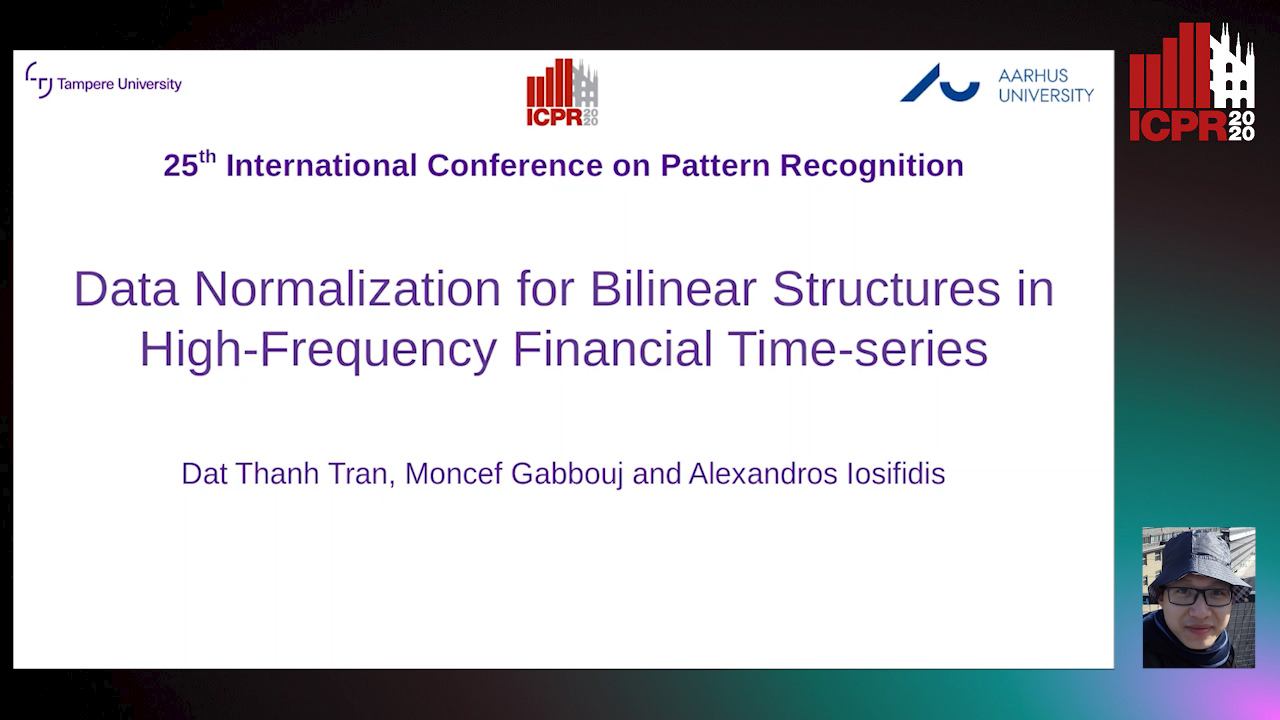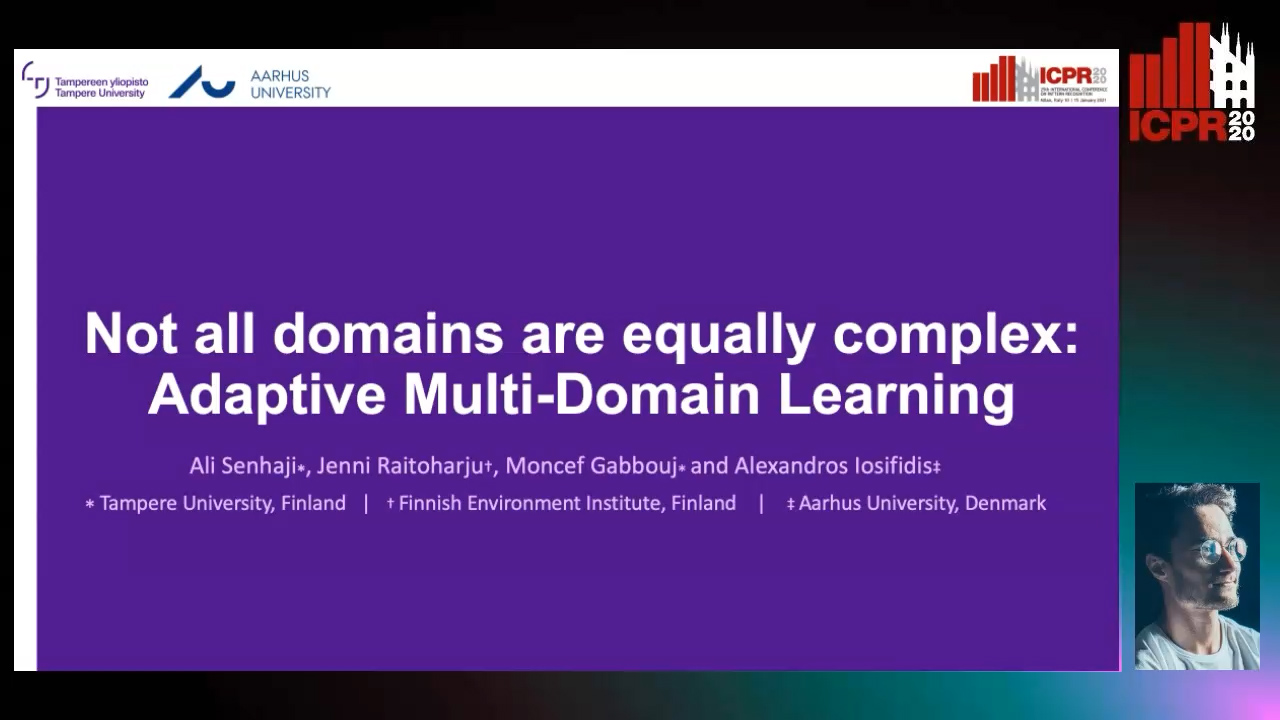Moncef Gabbouj
Papers from this author
Data Normalization for Bilinear Structures in High-Frequency Financial Time-Series
Dat Thanh Tran, Juho Kanniainen, Moncef Gabbouj, Alexandros Iosifidis

Auto-TLDR; Bilinear Normalization for Financial Time-Series Analysis and Forecasting
Abstract Slides Poster Similar
Not All Domains Are Equally Complex: Adaptive Multi-Domain Learning
Ali Senhaji, Jenni Karoliina Raitoharju, Moncef Gabbouj, Alexandros Iosifidis

Auto-TLDR; Adaptive Parameterization for Multi-Domain Learning
Abstract Slides Poster Similar